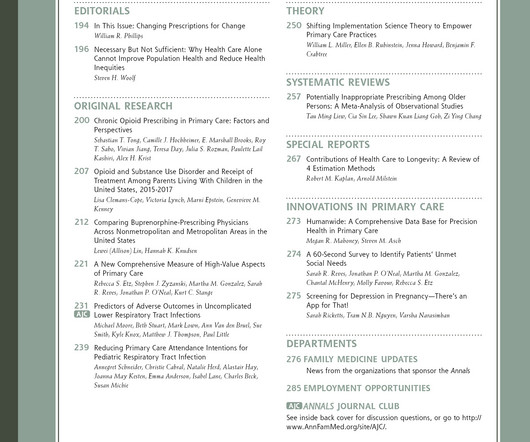Intervention Strategies for Management of Comorbid Depression Among Individuals With Hypertension: A Scoping Review [Cardiovascular disease]
Annals of Family Medicine
NOVEMBER 20, 2024
Background: Hypertension and depression frequently co-occur, complicating patient management and worsening outcomes. This scoping review aims to systematically map non-pharmacological interventions for managing comorbid hypertension and depression, providing insights into current practices and guiding future research.












Let's personalize your content